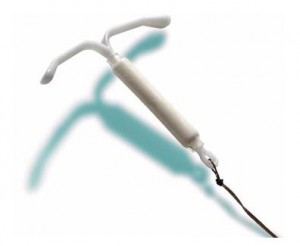FREE MIRENA CASE EVALUATIONS: CALL 1-800-632-1404
Our team of attorneys are now investigating claims and prepared to file Mirena lawsuits involving the intrauterine contraceptive device Mirena®. Manufactured by Bayer Healthcare Pharmaceuticals, Inc., Mirena is an IUD device [intrauterine device] that must be inserted by a trained health care provider and is intended to provide contraceptive protection for up to five years. Some women have experienced serious adverse side-effects and potentially life-threatening complications following the implantation of the Mirena device, including perforation of or imbedment in the uterus.
Alleged Side Effects from Use of Mirena
Mirea is an intrauterine device, and although the Mirena is supposed to work as a contraceptive, it is believed to cause side effects in users.
Painful Periods
Some women who use Mirena experience painful periods. Pain and bleeding in IUD users signify a dangerous condition until proved otherwise. Generally, when an IUD is placed, a patient is warned to expect somewhat heavier bleeding with her period and to have it last a bit longer than before; this is normal. Sometimes, however, the periods may be very heavy and painful, and there may be pain and bleeding between periods. This is due to irritation of the endometrium by the device or, perhaps, some mild infection.
Other Side Effects
Women who use Mirena can also experience lower abdominal pain, fever, chills, cramping, and unusual vaginal discharge.
Ovarian Cysts
Another side effect of Mirena is ovarian cysts. A cyst is simply a collection of fluid. Cysts can occur in most parts of the body, and it is important to understand that they are very common and more often than not go away by themselves and are only very rarely cancerous. Ovarian cysts are collections of fluid that form within the ovary itself or on the surface of an ovary. They can affect women of all ages. Although they are initially benign, there is the potential for malignant change. Symptoms of ovarian cysts include dull pelvic pain, delayed periods followed by heavy or irregular bleeding. If the cysts rapture, it can cause excruciating pain and may require immediate surgery.
Treatment of Cysts
Sometimes they can affect the normal functioning of the ovaries, upsetting the hormone balance and temporarily disrupting ovulation. In most cases, they will disappear after a few months of their own accord, but occasionally they can continue to grow. If there is a danger of the cyst rupturing, or if it looks like it might be interfering with your chances of conception in any way, your doctor may suggest you have it surgically removed using a laparoscopy. Once it is removed, ovulation should return to normal. In very rare cases a cyst may be cancerous.
FOR A FREE CASE EVALUATION:
CALL TOLL FREE: (800) 632-1404
EMAIL: clicking here.
FILL OUT THIS FORM FOR FREE HELP:
NOTE: Our team of attorneys will review potential cases for all fifty states, including Alabama Alaska Arizona Arkansas California Colorado Connecticut Delaware Florida Georgia Hawaii Idaho Illinois Indiana Iowa Kansas Kentucky Louisiana Maine Maryland Massachusetts Michigan Minnesota Mississippi Missouri Montana Nebraska Nevada New Hampshire New Jersey New Mexico New York North Carolina North Dakota Ohio Oklahoma Oregon Pennsylvania Rhode Island South Carolina South Dakota Tennessee Texas Utah Vermont Virginia Washington West Virginia Wisconsin and Wyoming.
